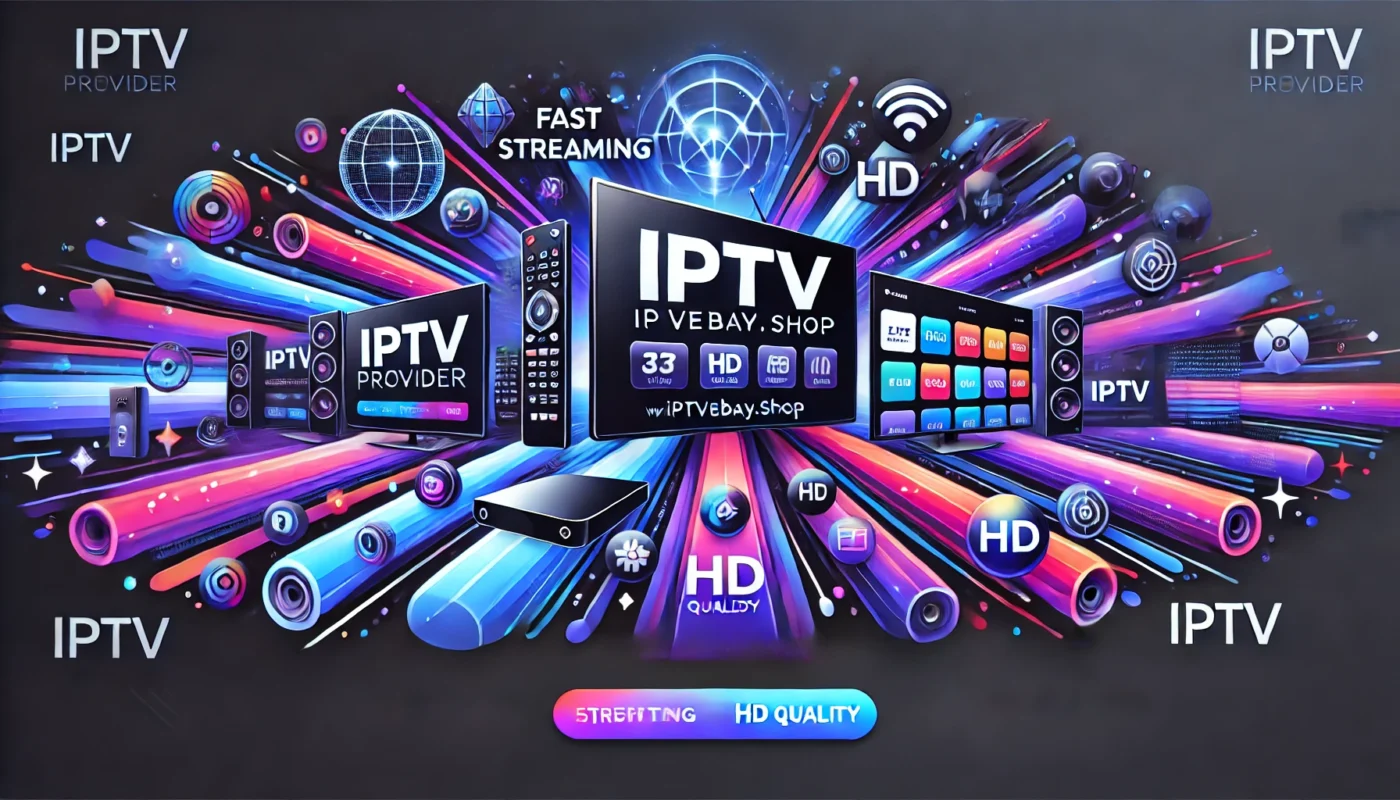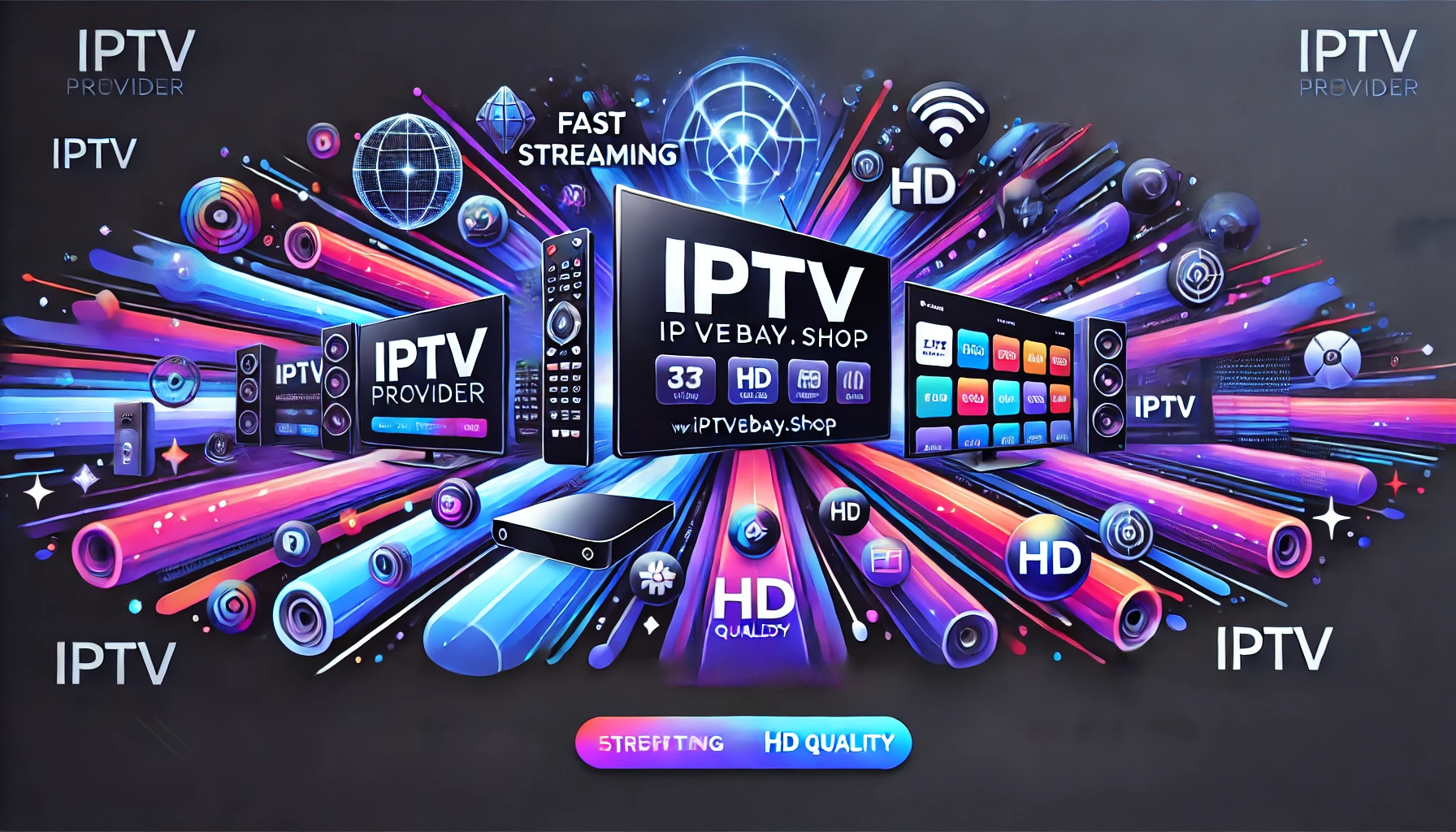IPTV Providers: The Complete Guide to Choosing the Right Service
Table of Contents
- What is IPTV?
- Advantages of Using IPTV Providers
- Factors to Consider When Choosing IPTV Providers
- Top IPTV Providers to Consider
- How to Set Up IPTV Services
- Troubleshooting Common IPTV Issues
- Legal Considerations Surrounding IPTV Providers
- Future Trends in IPTV Services
- Conclusion
What is IPTV?
Definition of IPTV
IPTV, or Internet Protocol Television, is a technology that delivers television content over the internet rather than through traditional terrestrial, satellite, or cable formats. Unlike conventional broadcasting methods that transmit signals to your TV via cables or satellite dishes, IPTV streams content directly from servers to your device via the internet. This means that as long as you have a stable internet connection, you can access a wide array of channels and programs from virtually anywhere.
How IPTV Works
IPTV operates by breaking down video content into data packets, which are then transmitted over the internet. Here’s a simple breakdown of how it works:
- Content Acquisition: IPTV providers acquire content through licensing agreements with networks and content producers.
- Encoding: The content is encoded into a digital format suitable for streaming.
- Distribution: This content is stored on servers, allowing users to access it via an internet connection.
- Viewing: Users can access the content on their devices using IPTV applications or through a web browser.
Types of IPTV include:
- Live Streaming: Watching channels in real-time, similar to traditional TV.
- On-Demand Services: Accessing content whenever you want, like Netflix.
- Time-Shifted TV: Watching previously aired content at your convenience.
Advantages of Using IPTV Providers
Benefits of IPTV Services
- Extensive Channel Selection: IPTV providers often offer a broader range of channels than traditional cable, including international and niche channels.
- Flexibility in Viewing: You can watch content on multiple devices such as smart TVs, tablets, and smartphones, making it easier to view your favorite shows on the go.
- Cost-Effectiveness: Many IPTV offer competitive pricing compared to cable services, often with no hidden fees or long-term contracts.
Considerations Before Switching to IPTV
While there are many benefits, there are also some considerations:
- Internet Speed Requirements: A stable and fast internet connection (typically at least 10 Mbps) is essential for smooth streaming.
- Potential Latency and Buffering Issues: Users may experience interruptions if their internet connection is slow or unstable.
Factors to Consider When Choosing IPTV Providers
Key Features to Look For
When evaluating IPTV , consider the following:
| Feature | Description |
|---|---|
| Channel Lineup | Look for a variety of channels, including local and international options. |
| Pricing | Compare subscription costs and check for any hidden fees. |
| User Interface | Ensure the interface is user-friendly and easy to navigate. |
Device Compatibility
Ensure that the IPTV service is compatible with your devices. Most providers support:
- Smart TVs (Samsung, LG, etc.)
- Streaming devices (Roku, Amazon Fire Stick)
- Mobile devices (iOS, Android)
Customer Support and Reliability
Responsive customer service is crucial. Look for providers that offer:
- 24/7 support
- Live chat options
- Comprehensive FAQ sections on their website
Top IPTV Providers to Consider
Overview of Popular IPTV in 2025
Here’s a list of some top IPTV providers you might consider:
| Provider | Channels Offered | Price Range | User Ratings |
|---|---|---|---|
| Provider A | 100+ channels | $30/month | ★★★★☆ |
| Provider B | 200+ channels | $50/month | ★★★★☆ |
| Provider C | Niche sports channels | $25/month | ★★★★☆ |
| Provider D | International channels | $40/month | ★★★★★ |
| Provider E | On-demand movies | $35/month | ★★★★☆ |
Specialty IPTV Providers
If you have specific interests, there are IPTV that cater to niche content, such as sports or international programming. These providers often offer tailored packages to suit various preferences.
How to Set Up IPTV Services
Required Equipment for IPTV
To start using an IPTV service, you’ll need:
- A compatible device (Smart TV, streaming device, etc.)
- Stable internet connection (minimum recommended speed is 10 Mbps)
- IPTV subscription to access the service
Step-by-Step Setup Guide
- Subscribe to an IPTV service: Choose a provider and sign up for a plan that suits your needs.
- Download the IPTV app: If applicable, download the provider’s app on your device.
- Log in to your account: Enter your credentials to access your account.
- Set up your channels: Follow the prompts to select your preferred channels and settings.
Troubleshooting Common IPTV Issues
Buffering and Streaming Problems
Buffering can be frustrating. Here are some tips to resolve it:
- Check your internet speed: Use speed test tools to ensure you meet the minimum requirements.
- Reduce the number of connected devices: Too many devices on the same network can slow down your connection.
- Restart your router: This can help clear any connection issues.
Account and Subscription Issues
If you encounter issues accessing channels, consider the following steps:
- Verify your subscription status: Ensure your account is active and payments are up to date.
- Clear app cache: Sometimes clearing the cache can resolve glitches in the app.
- Contact customer support: If problems persist, reach out to your provider’s support team.
Legal Considerations Surrounding IPTV
Understanding IPTV Legality
Choosing the right IPTV provider is essential for legal reasons. Legal IPTV services operate under licensing agreements and comply with broadcasting regulations, while illegal IPTV services often offer unauthorized content.
Staying Compliant
To ensure you choose a legitimate IPTV provider:
- Research the provider’s licensing agreements.
- Look for reviews and ratings from reliable sources.
- Avoid providers that seem too good to be true with extremely low pricing for vast channel selections.
Future Trends in IPTV Services
Innovations in IPTV Technology
As technology evolves, so does IPTV. Upcoming trends may include:
- Enhanced user experiences: AI-driven recommendations based on viewing habits.
- Integration with smart home technology: Controlling your TV with voice commands.
The Impact of 5G on IPTV
The rollout of 5G technology will significantly enhance IPTV services by:
- Providing faster internet speeds for smoother streaming.
- Enabling more users to stream simultaneously without buffering.
Conclusion
In conclusion, IPTV offer a flexible, cost-effective alternative to traditional television services, with a wide array of channels and viewing options. By considering the factors outlined in this guide, such as pricing, channel selection, and device compatibility, you can choose the IPTV service that best meets your needs. Explore your options today and enhance your viewing experience with the right IPTV provider.


Leave a Reply